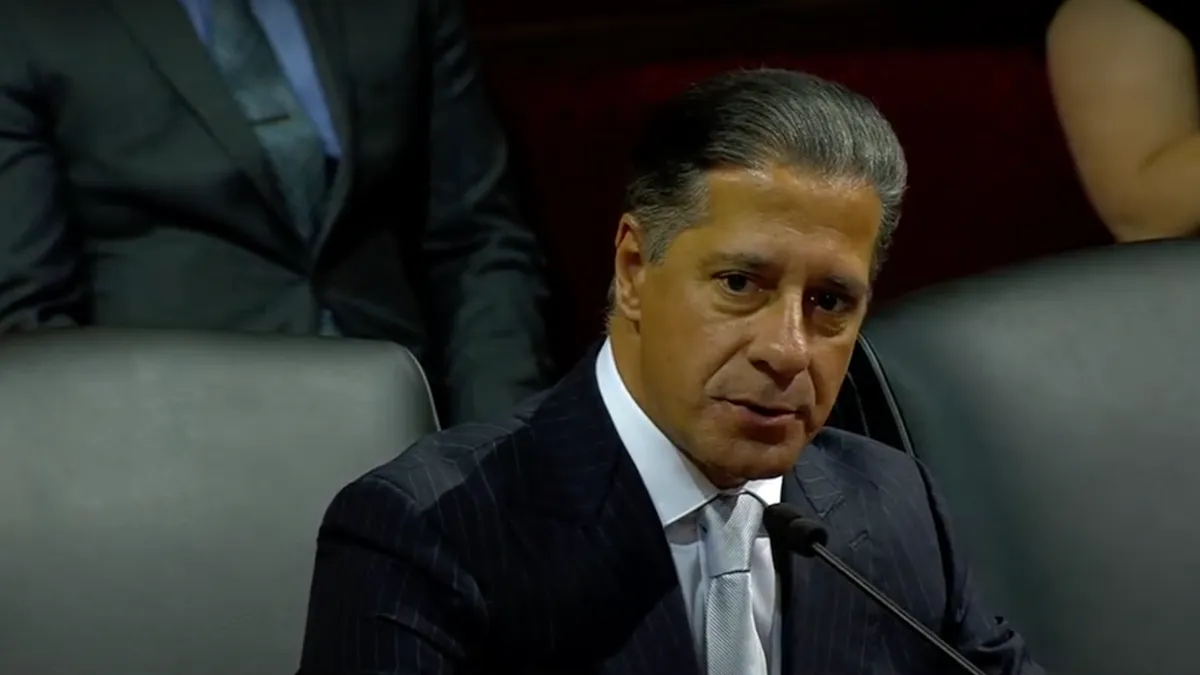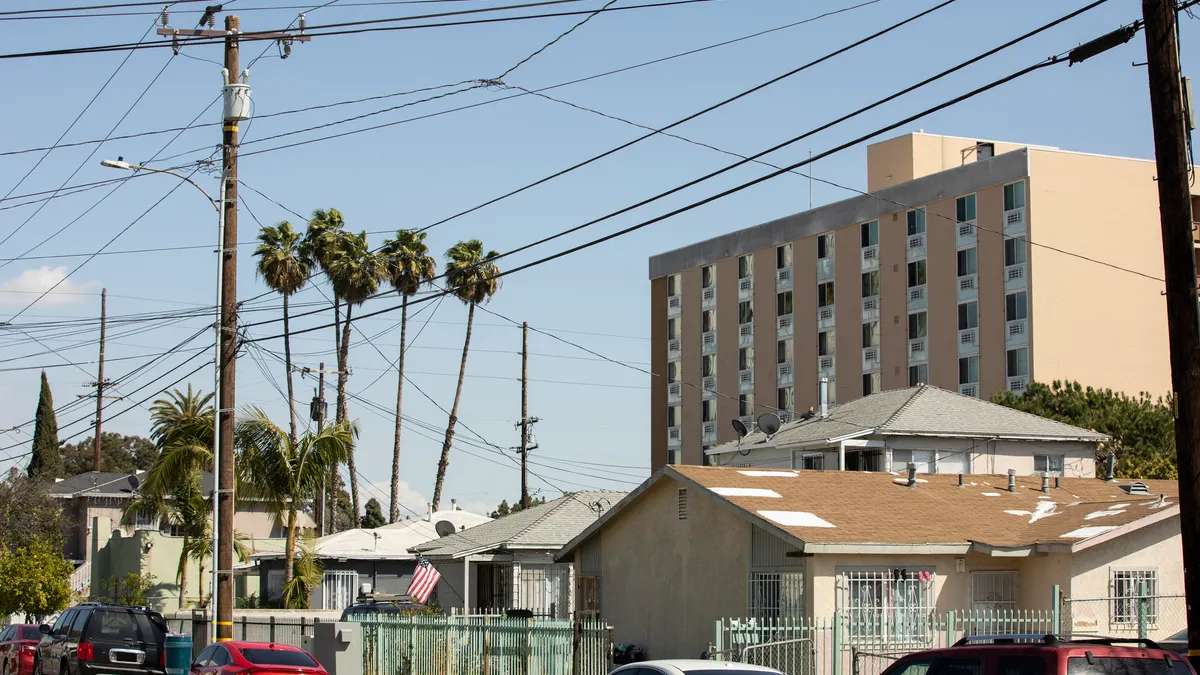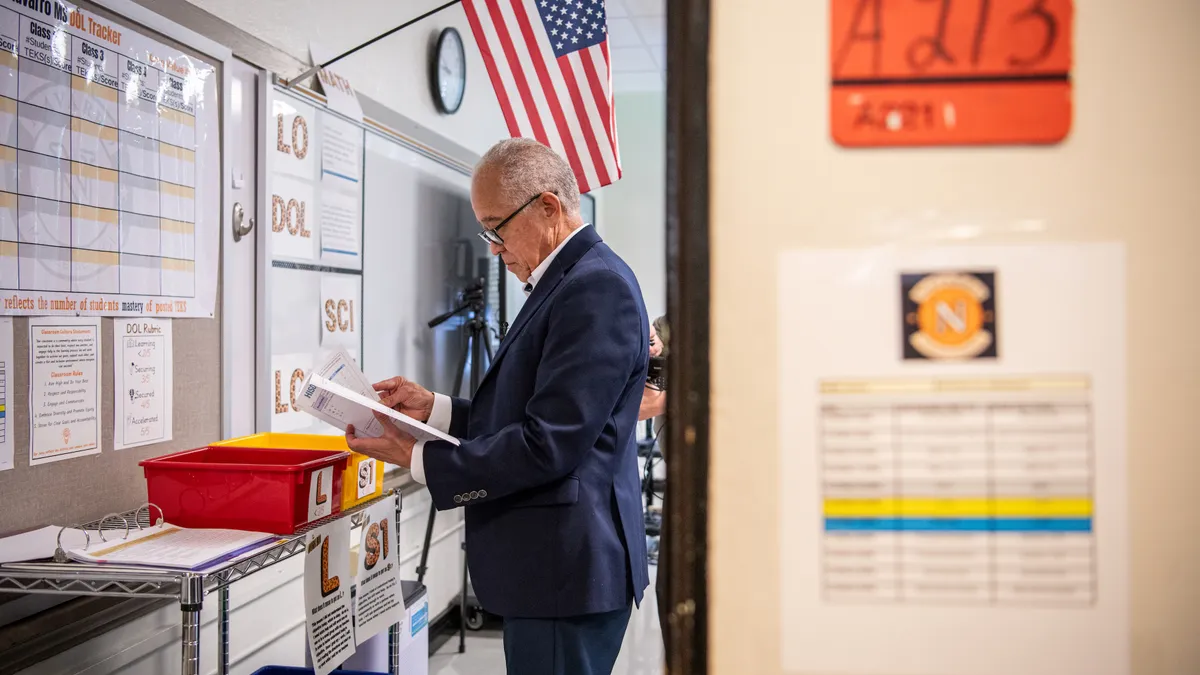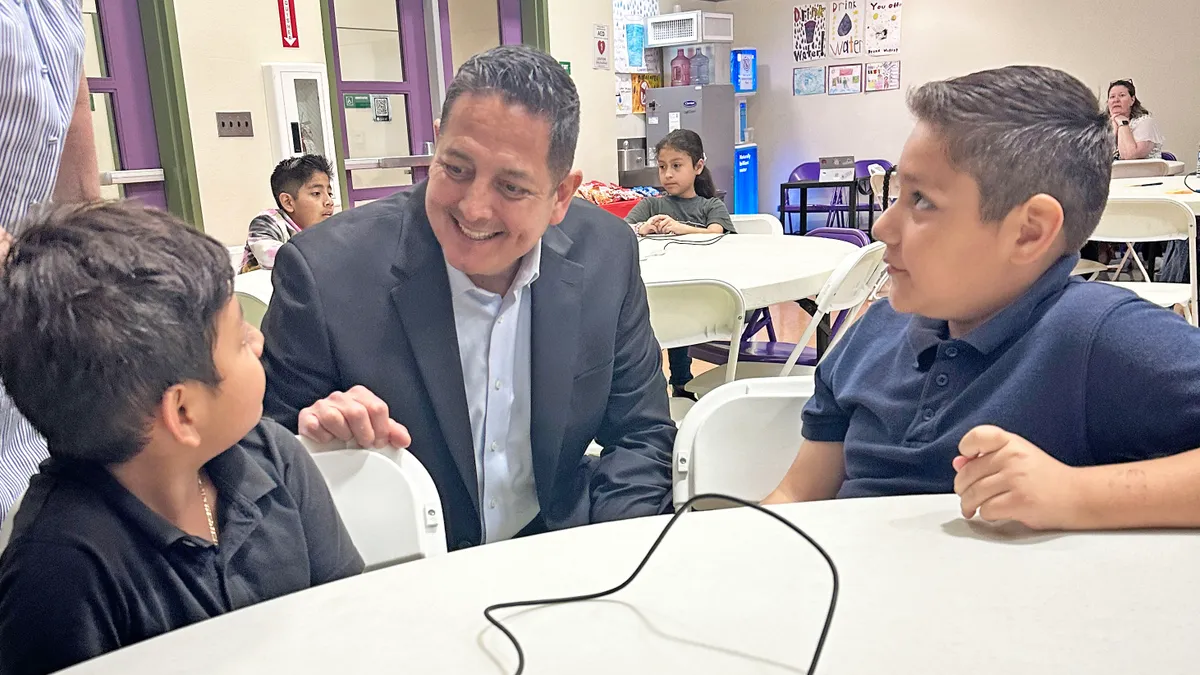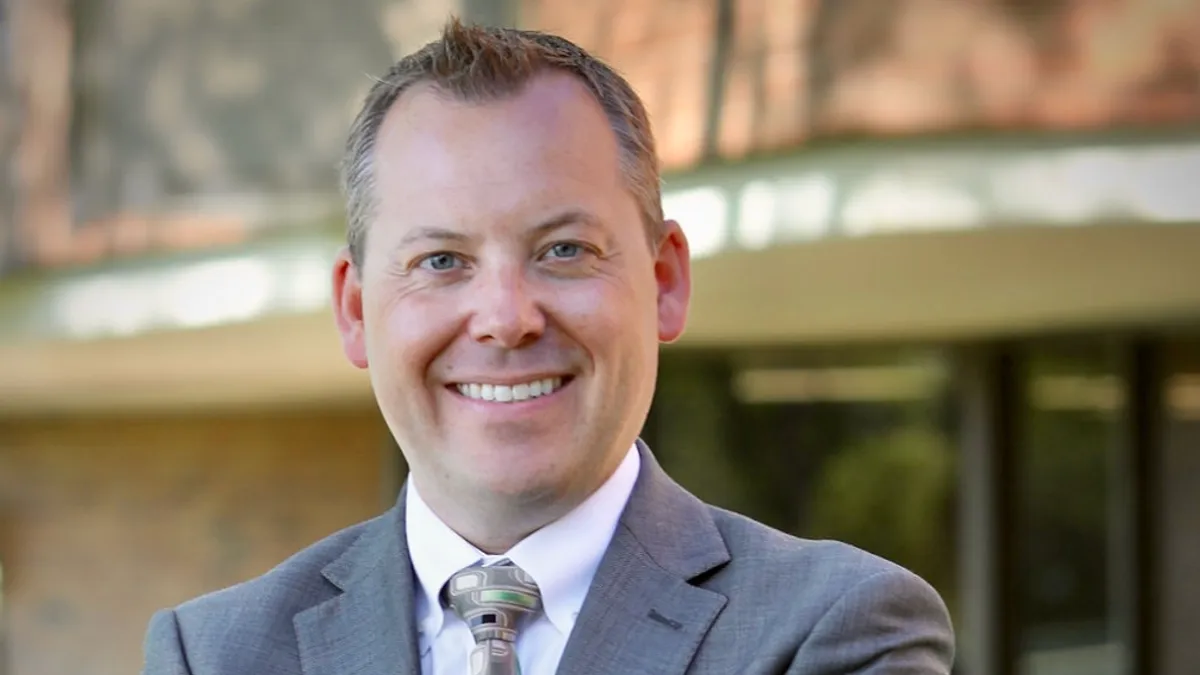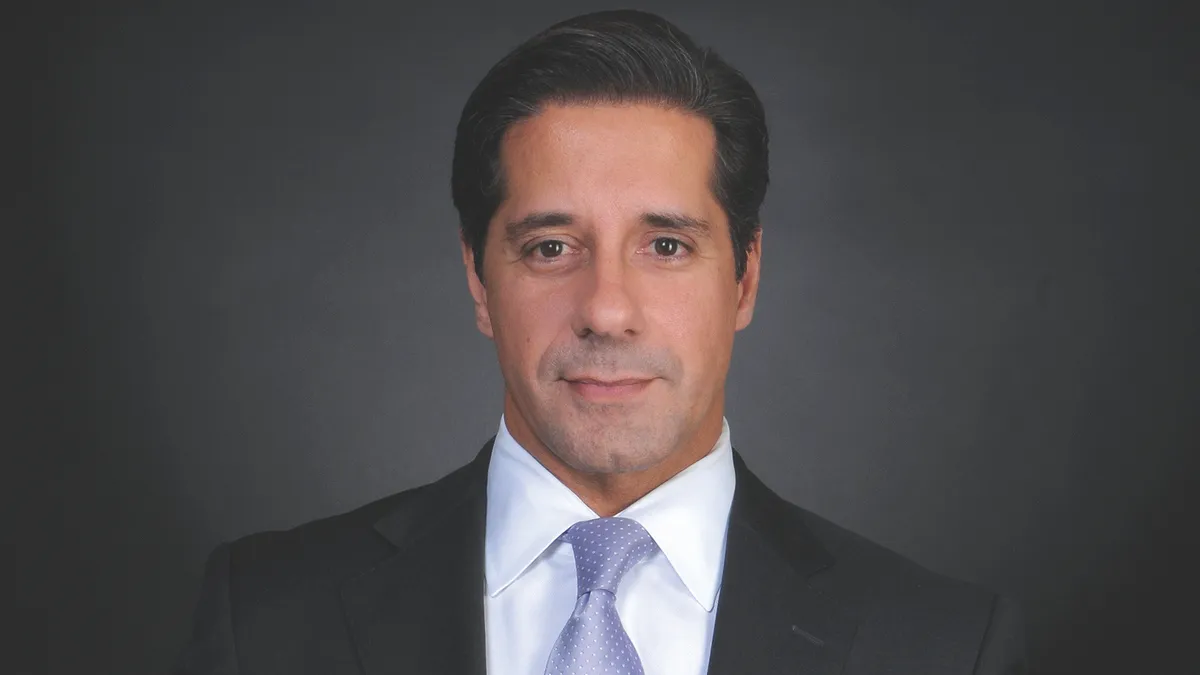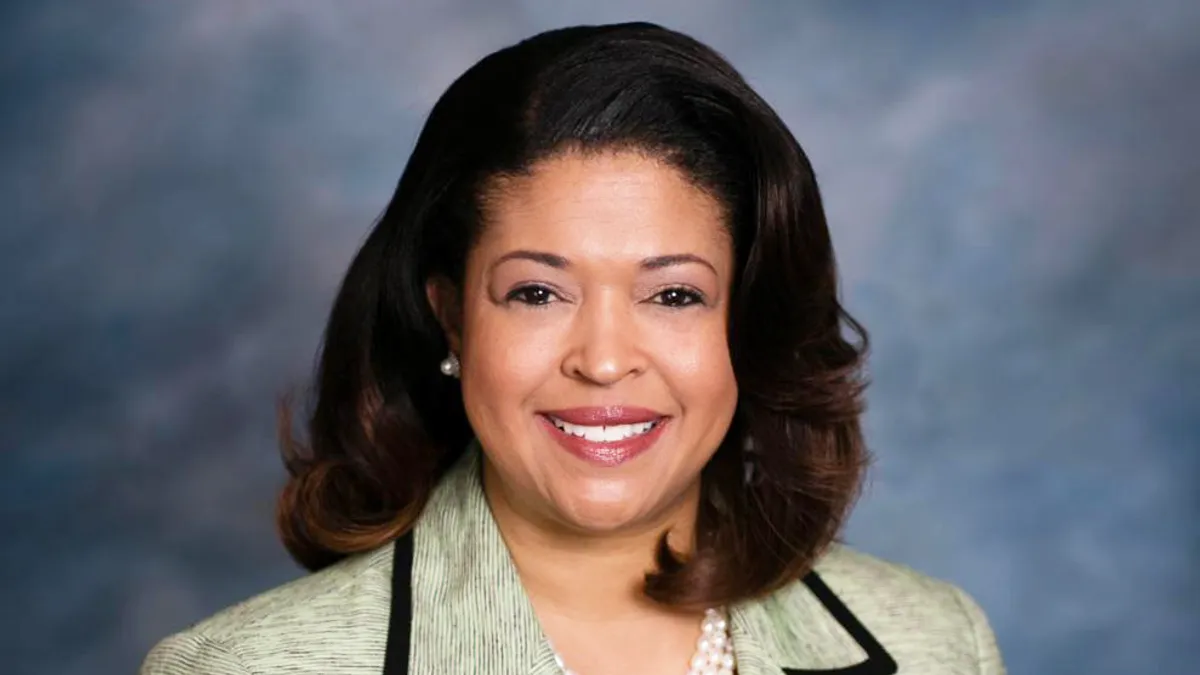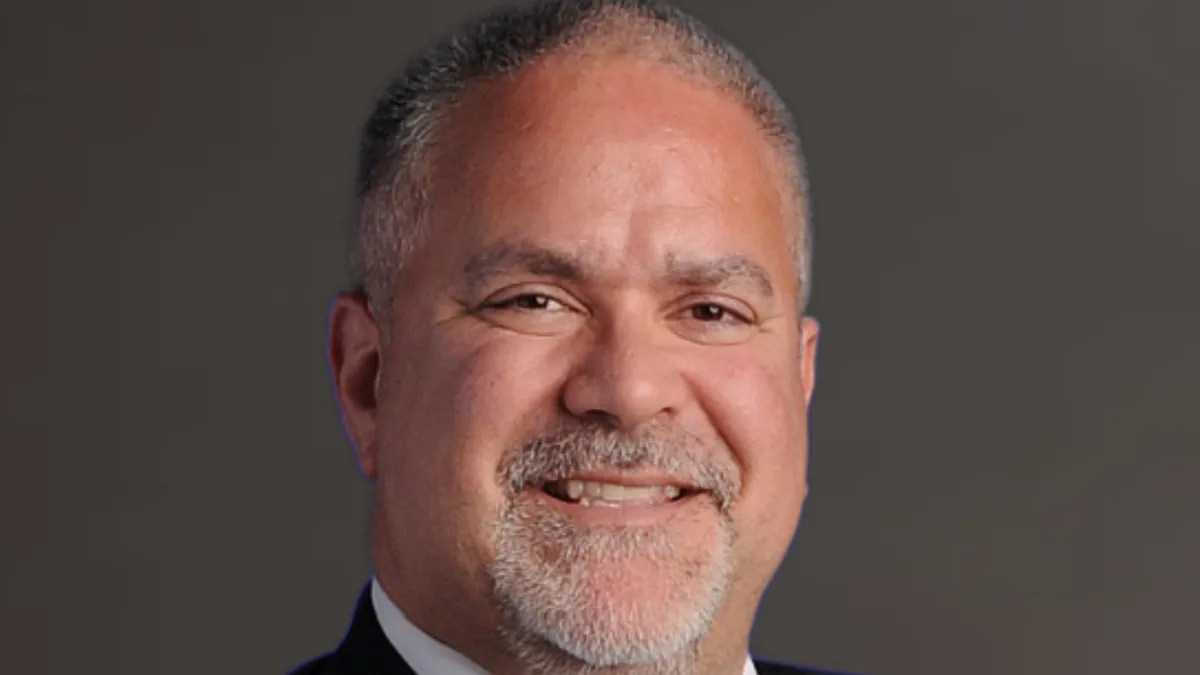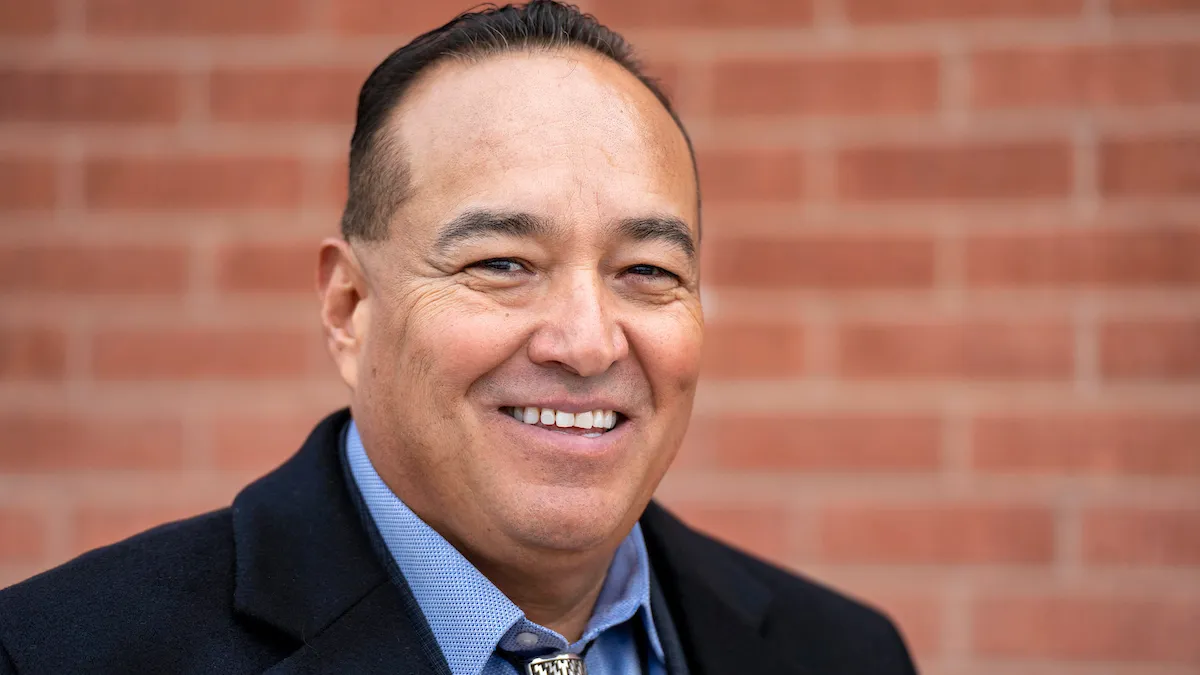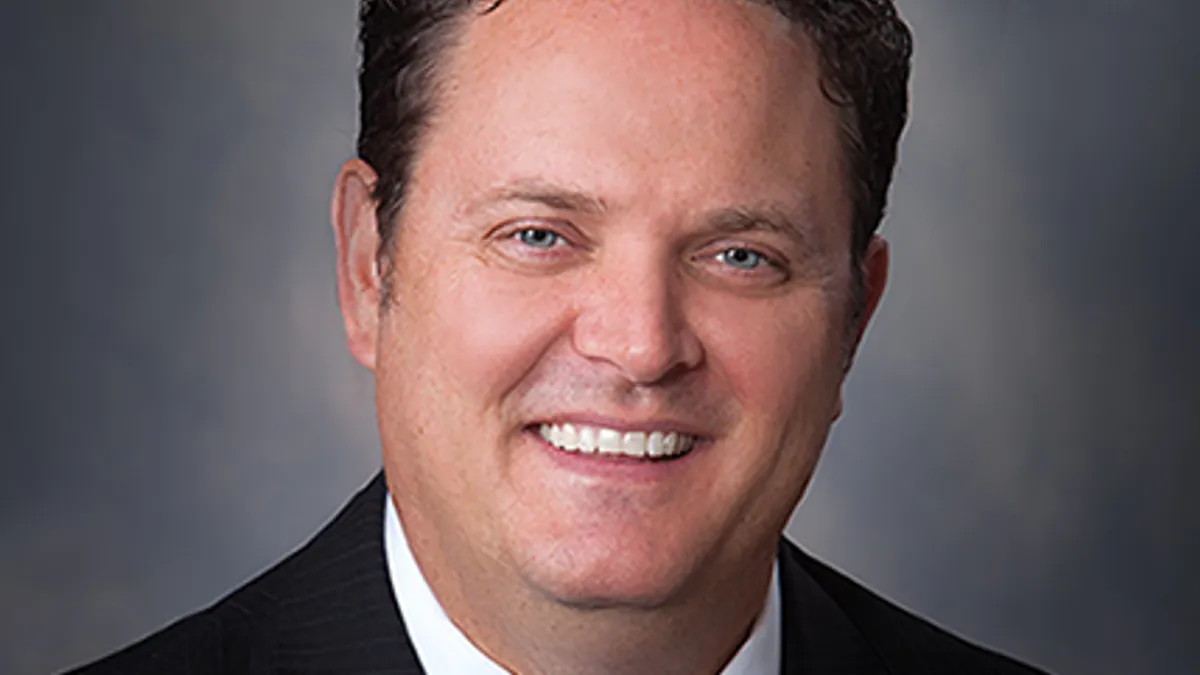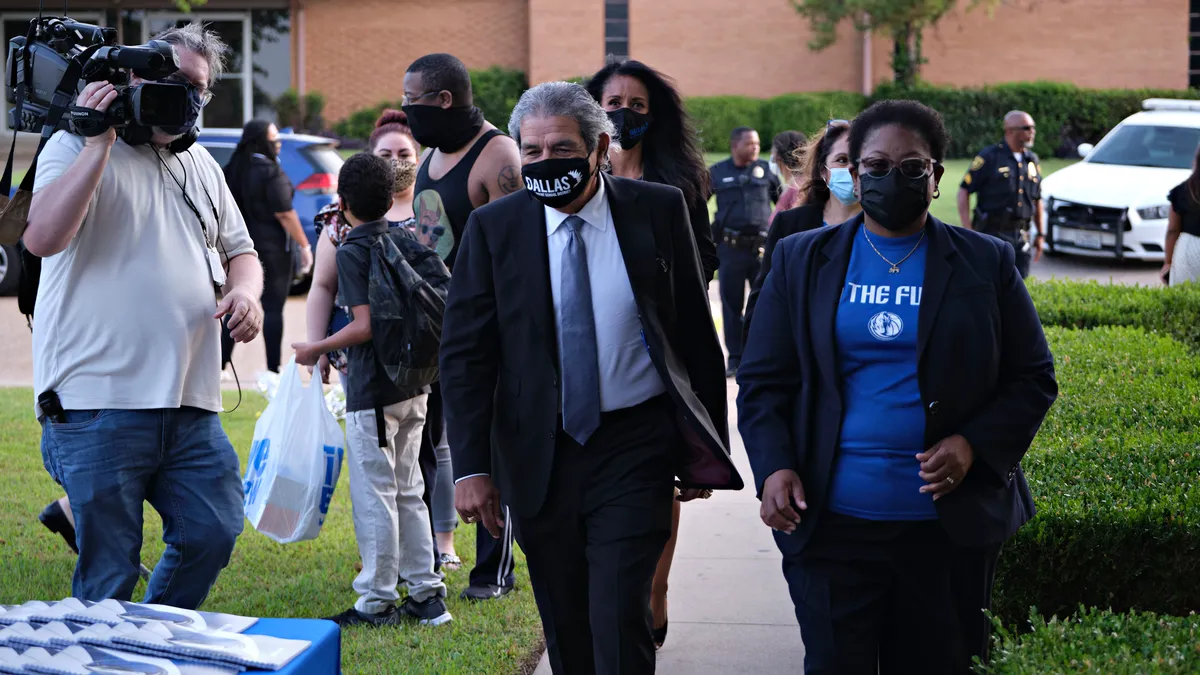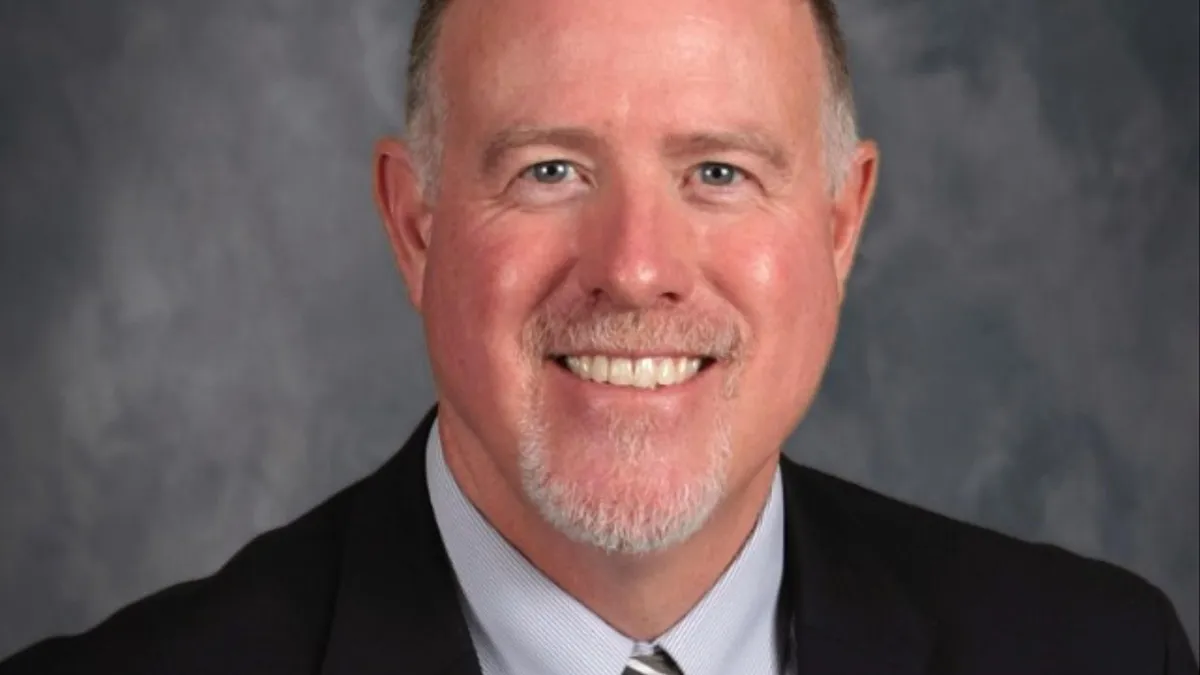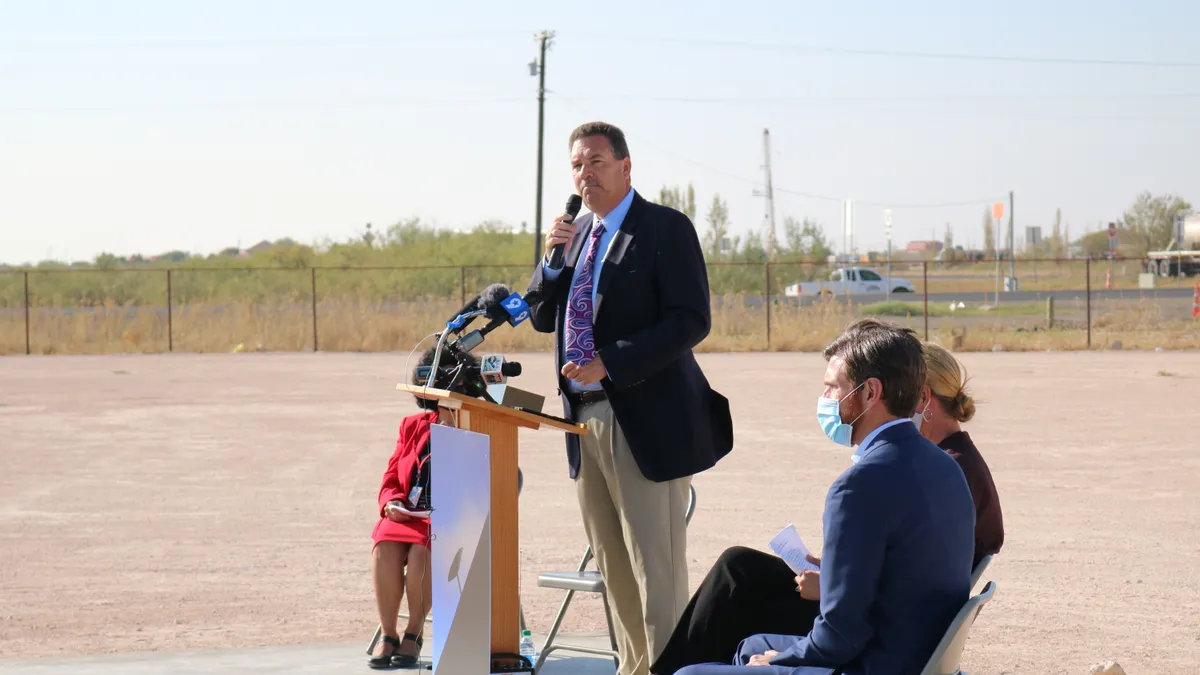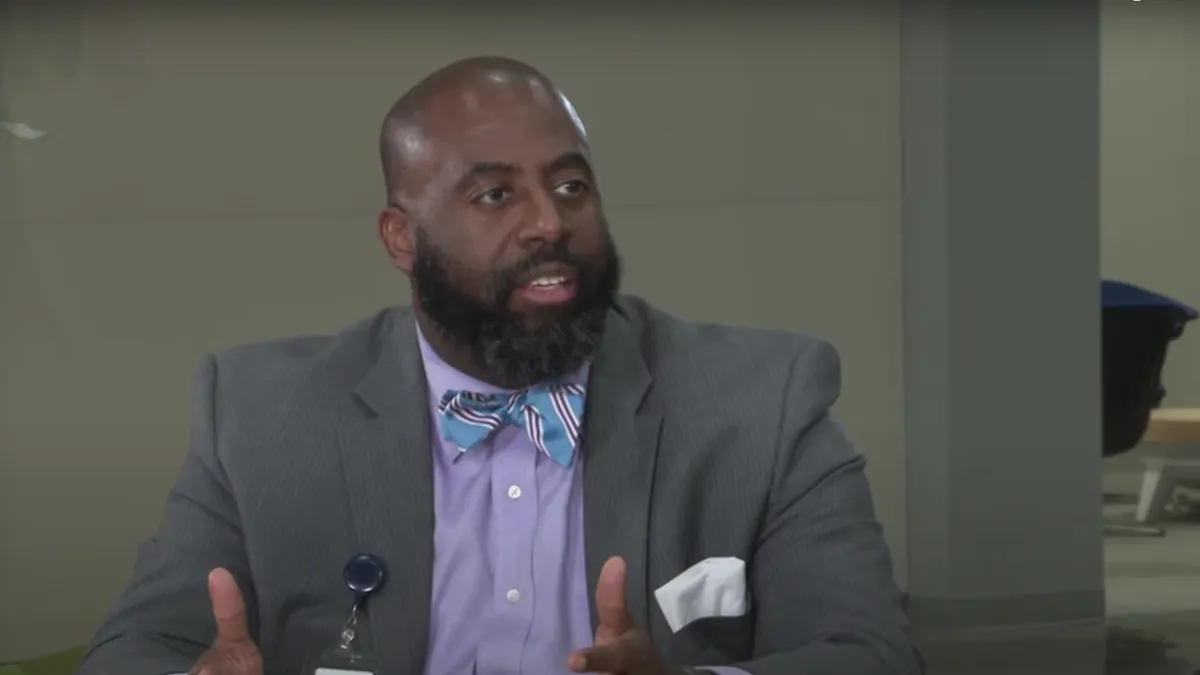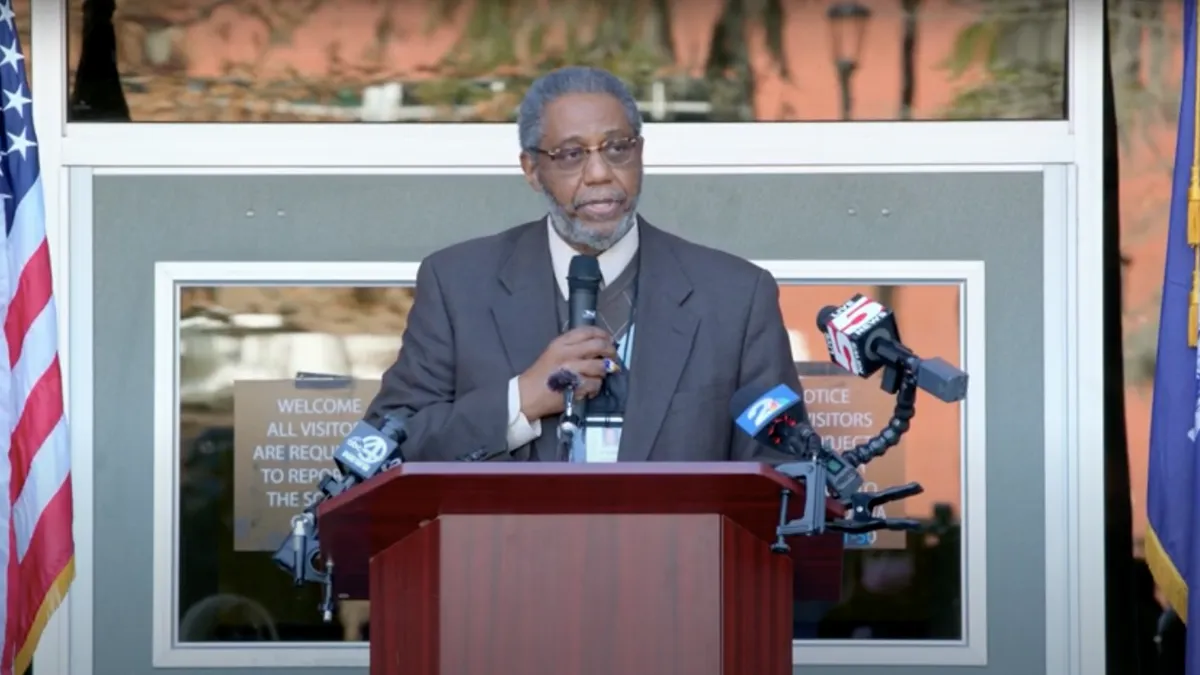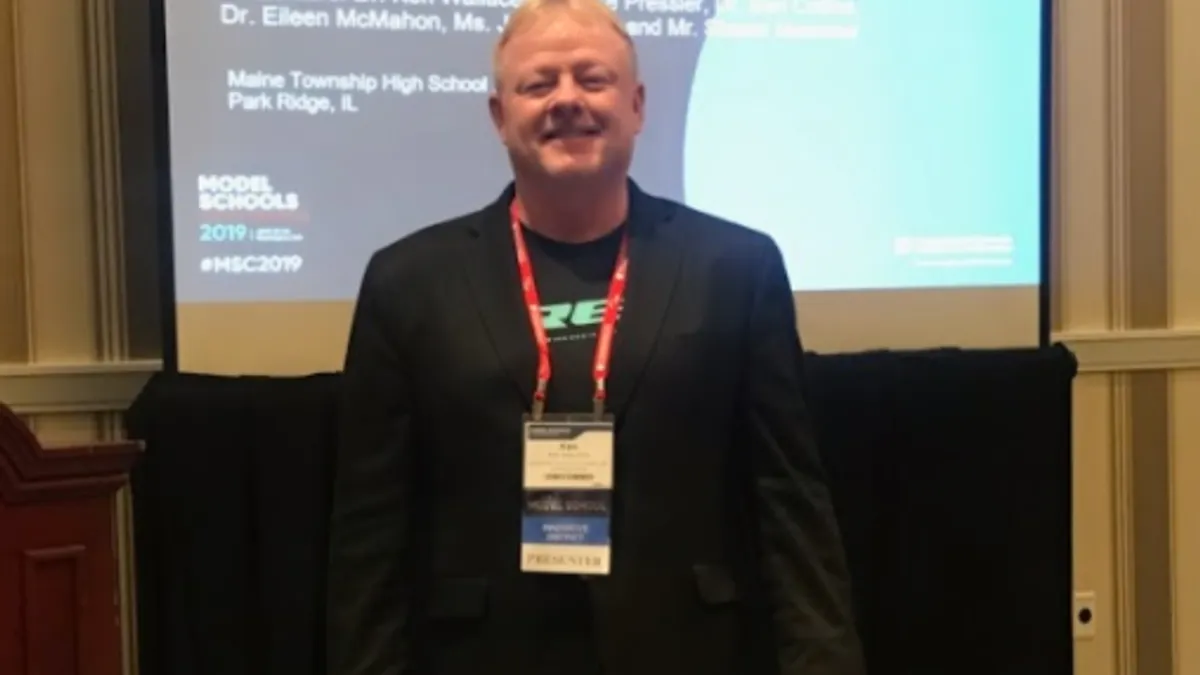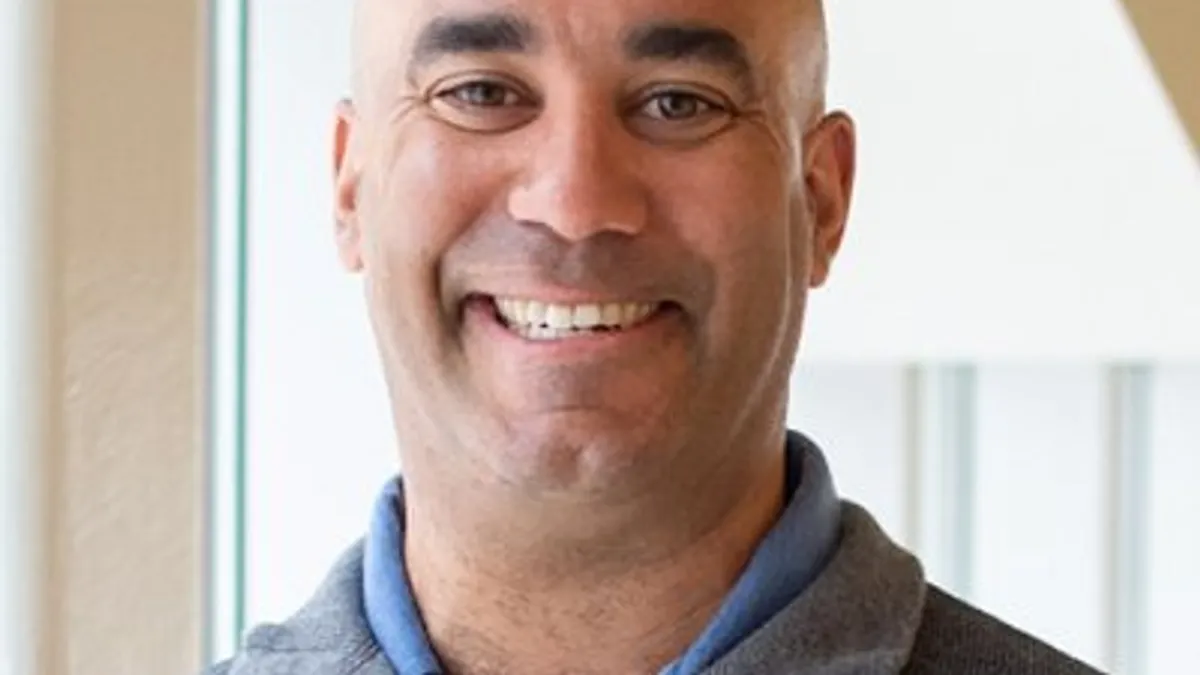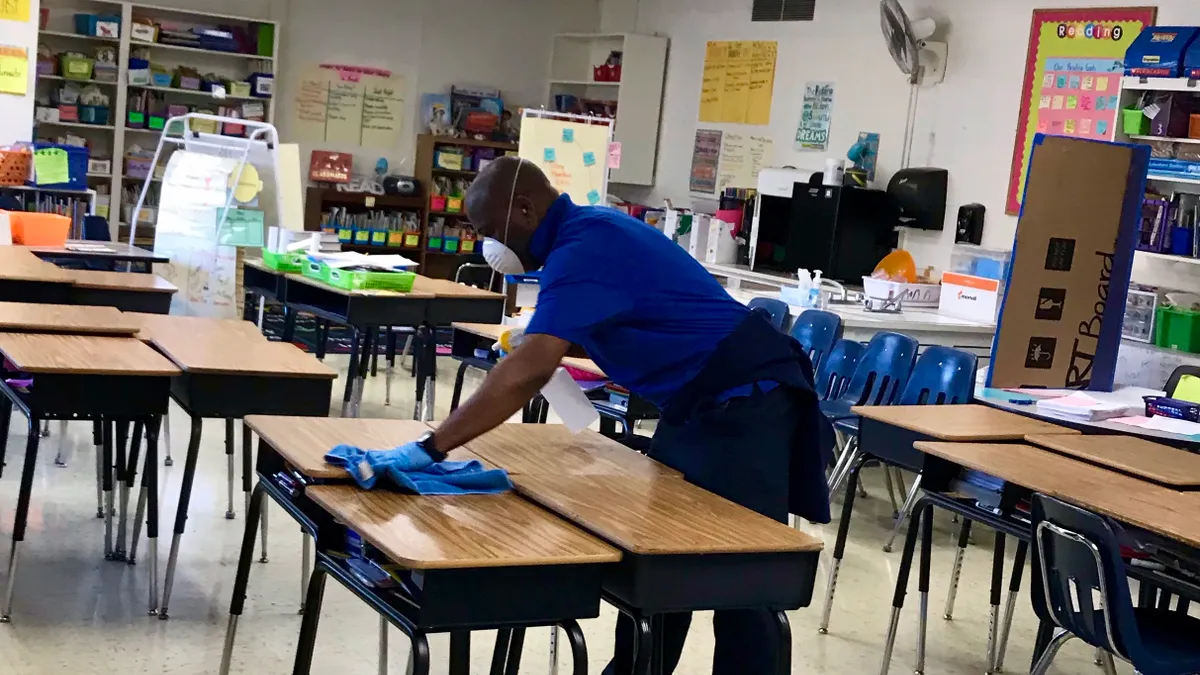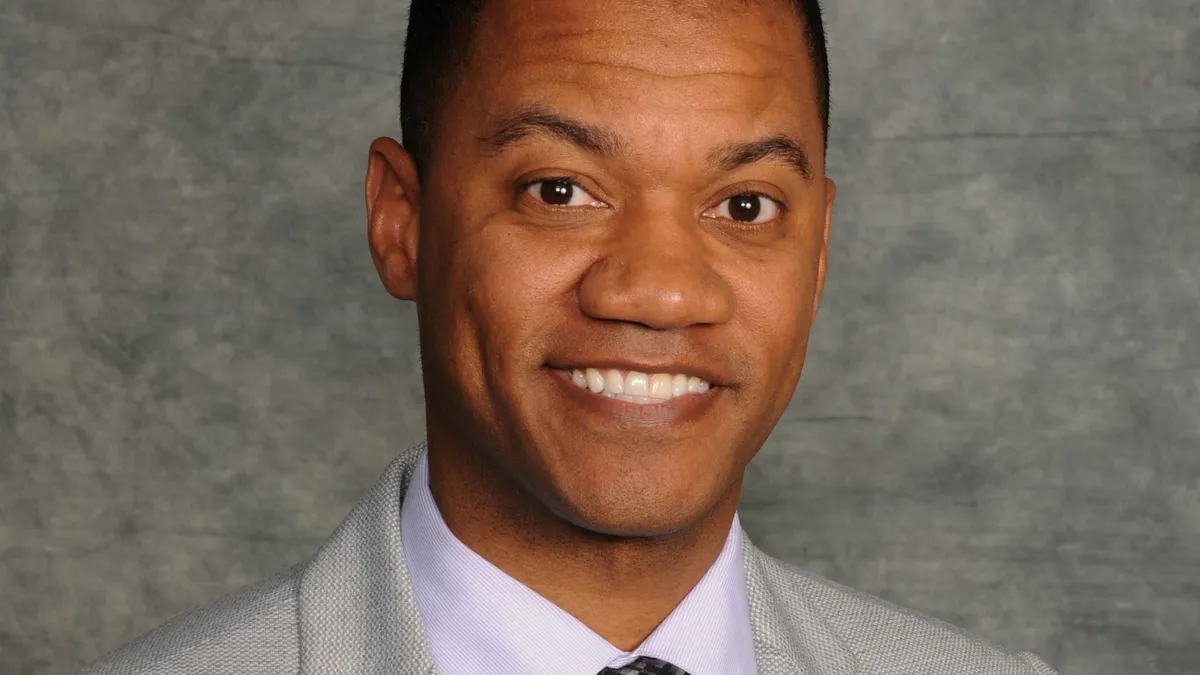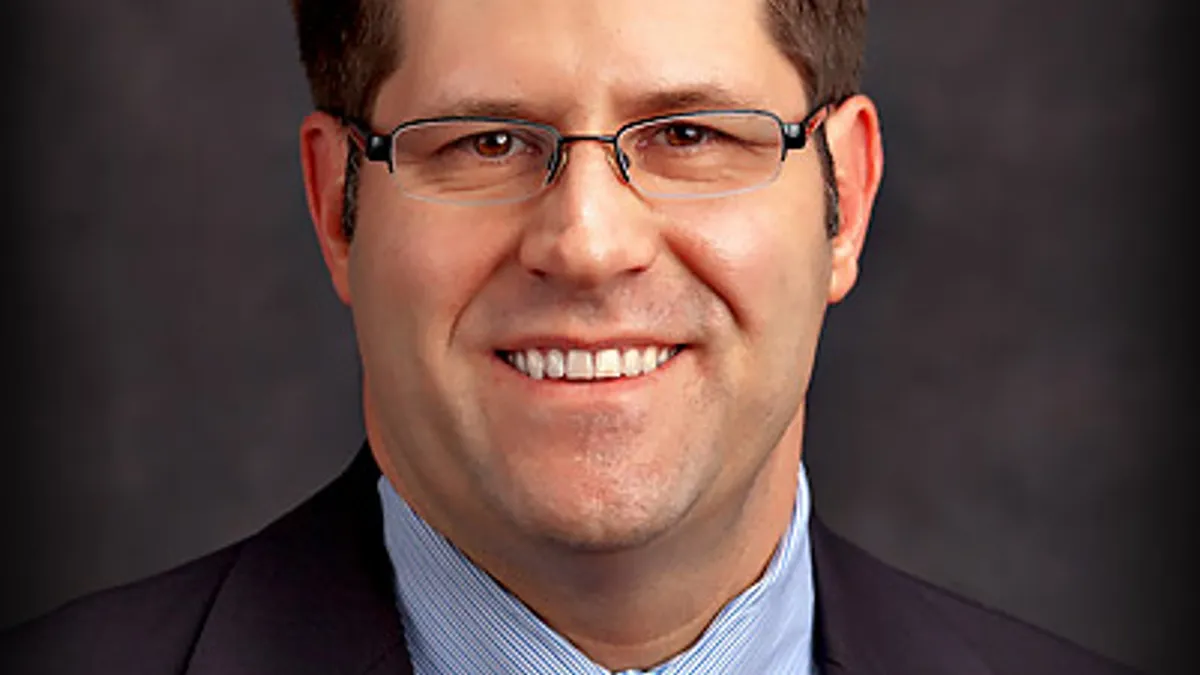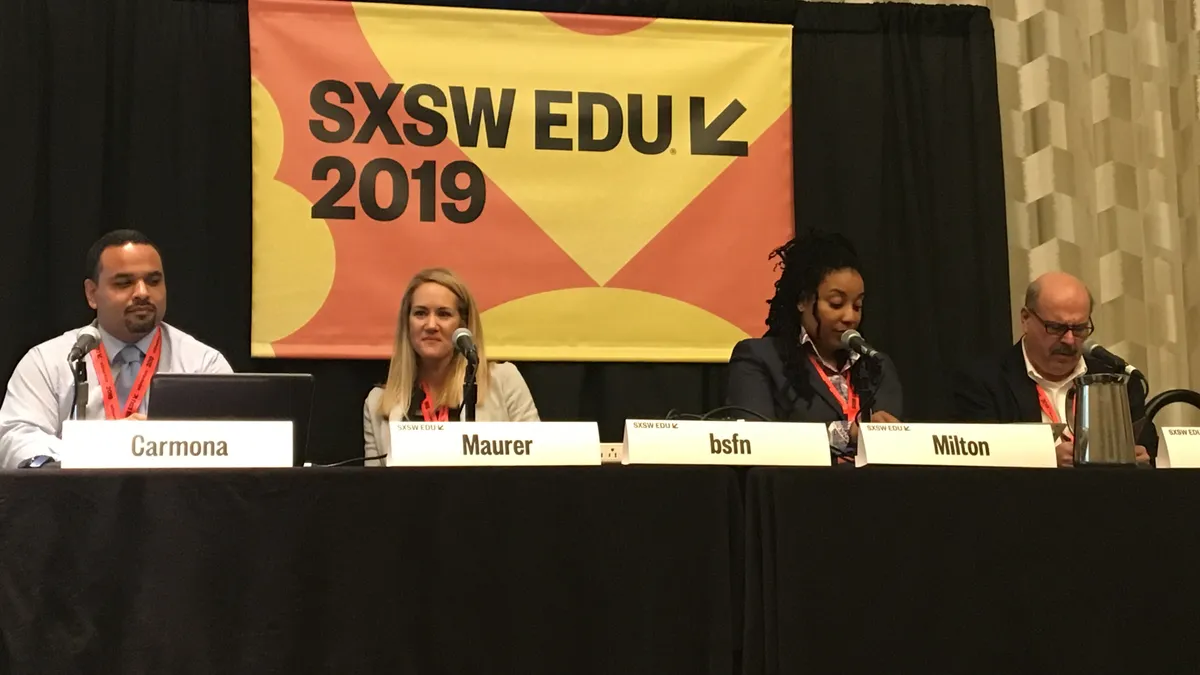Lessons In Leadership is an ongoing series in which K-12 principals and superintendents share their best practices as well as challenges overcome. For more installments, click here.
In March, a joint strike held by 60,000 members of Service Employees International Union Local 99 and United Teachers Los Angeles shuttered schools in Los Angeles Unified School District for three days.
In the weeks that followed, the district reached agreements with both labor unions that capped months of collective bargaining and were hailed by Superintendent Alberto Carvalho as ensuring dignity and competitive wages for faculty and staff in the nation’s second-largest district.
Along with wage increases and class size limits, the teachers union contract included investments in green space, additional college counselors and mental health support professionals, extra professional development time, and stipends for dual language program teachers.
The school employees’ agreement, meanwhile, included a minimum wage outpacing both Los Angeles and California, health benefits for part-timers, professional development investments, and terms on respectful treatment, a bus bidding process, mandatory overtime and a Joint Labor Management Committee.
In the second half of our conversation with Carvalho, the superintendent shared insight into the process of negotiating with both unions, his advice on reaching labor deals, and his overall recommendations for other district leaders. For part one of the interview, on how NAEP scores are adding fuel to the district’s reading and math push, click here.
Editor’s Note: The following interview has been edited for brevity and clarity.
K-12 DIVE: LAUSD recently negotiated new contracts with its school employees' union and its teachers' union following a joint strike. What was that process like?
ALBERTO CARVALHO: I think it's fair to say that was a process we had to go through. It’s been well-documented. It’s a process that every administration's gone through. But we take pride in the fact that the school closures lasted only three days — three days too long, but three days nonetheless.
I think the strike is the result of years of built-up frustration and unaddressed economic conditions impacting not only teachers but support staff as well, in one of the costliest areas of our nation. When you look at the cost of living and when you look at the unaffordability of housing, the combination of those two makes it nearly impossible for individuals often to work and live in the same community.
What advice would you give to other district leaders on working with unions and negotiating agreements?
CARVALHO: No. 1, do your research. Try to understand if your difficulties specific to staffing schools are emanating from a lack of talent or economic conditions in your community that are driving people away. Secondly, if the findings of your research indicate that your year-to-year compensation increases are not keeping pace with cost of living increases and historically you have not reached the level of compensation equity, then prepare your district to deliver on a compensation package that not only dignifies and respects the work being done, but also identifies critical areas of stress.
For us — with school psychologists, nurses, IT technicians, and certain credentials as far as teachers are concerned — we needed to differentiate the salary. We were able to negotiate that to attract the talent, meaning you're not going to pay everybody the same, because there are some areas of additional stress that require steeper compensation increases.
But the most important bit of advice is to prepare your budget for a contract negotiation that may exceed your comfort zone — but may be necessary once you consider the surrounding economic conditions in your community.
Then you must also create the necessary revenues needed to implement these labor contracts. So first assess the need, take into account local economic conditions, and determine what is possible. As you get to that point, reorganize, realign resources, protect schools, reduce bureaucracy, restructure old debt. And then you're able to do what we were able to do, which was a massive 21% salary increase over four years for teachers, and a comparable increase with some add-ons for support staff.
Recognize where your kids' performance is, and do all you can — not over 10 years, but over two years — to increase their proficiency level.

Alberto Carvalho
Superintendent, Los Angeles Unified School District
I believe we reached a level of compensation that provides living wages within our community — and a comparable compensation schedule for our teachers that allows them to live in the community where they work.
If you had one overall piece of advice for other district administrators, what would it be?
CARVALHO: Be bold. Ignore the political pressures that public education, these days, is facing from a number of organized entities and agencies that have embraced a set of values and ideologies that often do not recognize the demographic profile of all students. Resist the temptation of taking the road more traveled because it is convenient.
Lead with courage. Do not be politically influenced. Fight for all students. Educate all students. Take on the status quo. Slay the sacred cows. Recognize where your kids' performance is, and do all you can — not over 10 years, but over two years — to increase their proficiency level.


